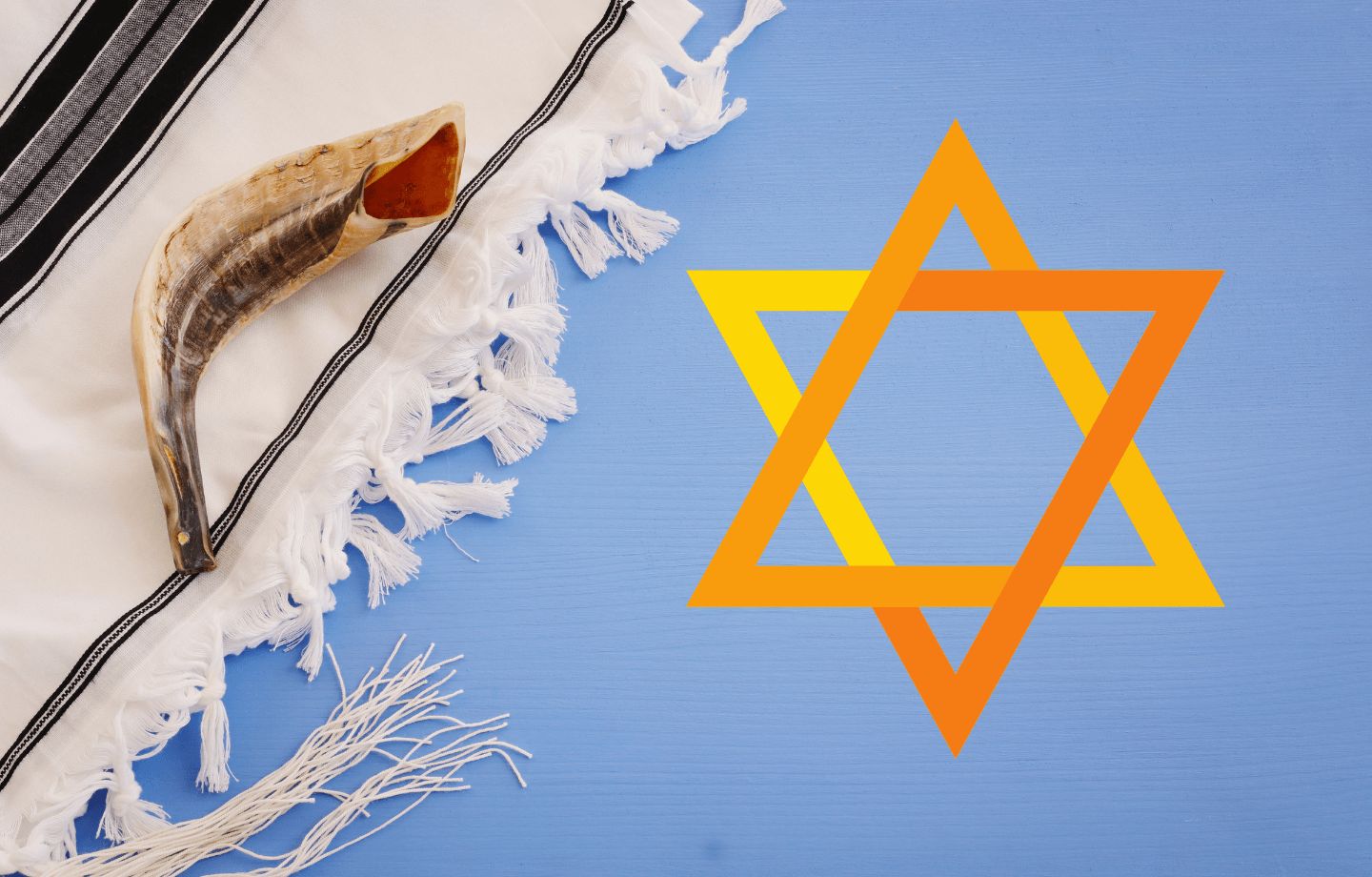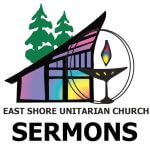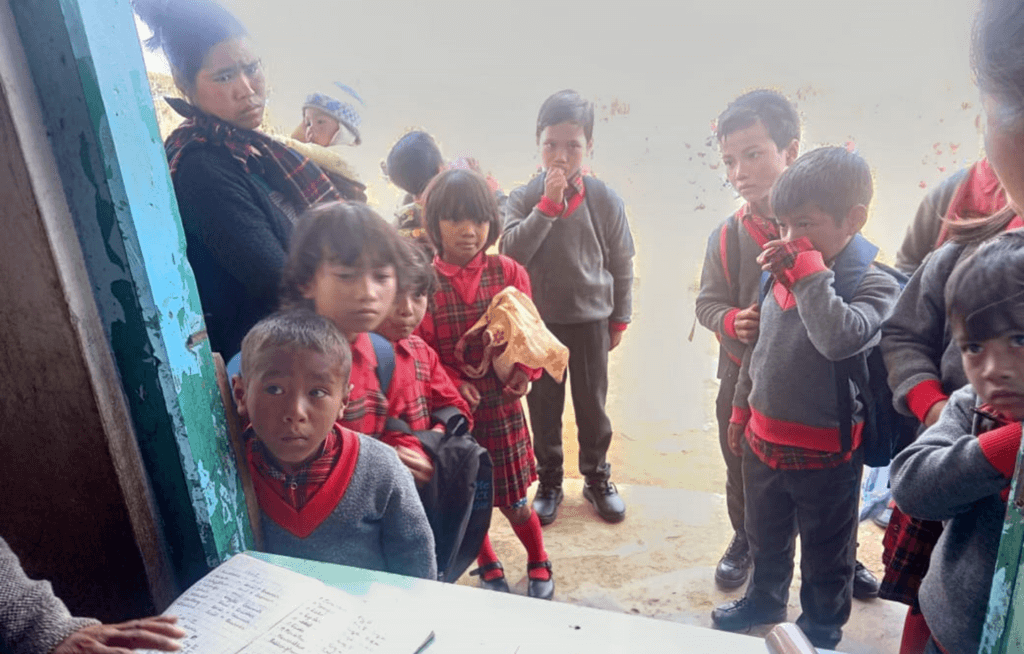
- This event has passed.
Yom Kippur/Repentance and Repair
Sunday, November 6 @ 10:30 am - 11:30 am


We draw inspiration from the Jewish New Year, Yom Kippur, a ritual of atonement that allows us to bring to mind and heart those whom we have wronged, and to ask for forgiveness. Yom Kippur is the moment in Jewish time when we dedicate our mind, body, and soul to reconciliation with our fellow human beings, ourselves, and God. As the New Year begins, we commit to self-reflection and inner change. Rev. Dr. María Cristina Vlassidis Burgoa will be preaching.
How to Attend
We require masks in all buildings. We encourage all in person participants to be vaccinated. Read more about our In Person Guidelines here.
• To virtually attend, please Zoom in using room number 989 3107 9078, passcode: chalice.
• To phone into the service, call 669-900-6833, Meeting ID: 989 3107 9078.
For those joining, please mute as soon as you enter the room, so everyone can hear. Please note, the services will be recorded, but at this time, there are no plans to share the recording.
More Information
Religious Education for children and youth happens during worship on Sundays. Children and youth arrive in the Sanctuary for the just a little bit and welcome in Sunday with a story and song. Then, they attend their own programs in the Education building. Learn more here!
If you don’t have a chalice, but want to light one, check out our Making a Chalice at Home page.
Both virtual and in person services are followed by coffee hour.
Children’s Story
Sermon Audio
Yom Kippur/Repentance and Repair
Sermon Text
Kol Nidre “All Vows” is an Aramaic declaration recited in the synagogue before the beginning of the evening service on every Yom Kippur. It is also a legal formula used for the annulment of vows. The prayer is recited in its entirety three times, The first time the cantor must utter it very softly, like one who hesitates to ask God for a gift; the second time they may speak somewhat louder; and the third time more loudly still, as one approaching a friend.
The wording of the prayer takes us back in history to 15th century Spain during the inquisition, when Jews were forced to convert to Christianity or face death. But they converted in name only and found a way to practice Judaism in privacy at home, and created Kol Nidrei to nullify their vows of conversion before God. By setting it at the beginning of the first Yom Kippur service, Jews found a way to confront their worst sin imaginable and could then devote the rest of Yom Kippur to their other transgressions.
The message of Kol Nidrei carries a deeper meaning: If we’re truly seeking to change our behavior for the coming year, to become closer to the divine, to be our best selves, and be accountable in our communities, we must begin with how we speak and relate to each other.
Do we engage in speaking of others in a derogatory way?
Do we needlessly intensify discussions with inflammatory comments?
Or do we take the opportunity to listen and to express our commitment to justice, right relationship, and building the beloved community?
Yom Kippur offers us the opportunity to bear our souls, to face our own nakedness. To affirm that we want to return to our better selves. We are given an opportunity to atone, to repent, to ask for and offer forgiveness, and to transform ourselves.
This is the Kol Nidrei Prayer:
Kol Nidrei
All vows,
and things we have made forbidden on ourselves,
and oaths,
and items we have consecrated to the Temple,
and vows issued with the expression “konum,”
and vows which are abbreviated,
and vows issued with the expression “kanos,”
that we have vowed,
and sworn,
and dedicated,
and made forbidden upon ourselves;
from this Yom Kippur
until next Yom Kippur—
may it come to us at a good time—
We regret having made them
may they all be permitted
forgiven, eradicated
and nullified,
and may they not be valid
or exist any longer.
Our vows shall no longer be vows,
and our prohibitions
shall no longer be prohibited,
and our oaths are no longer oaths.
Forgive the entire congregation
of the children of Yisrael
and the stranger amongst them
for the entire people sin unintentionally.
Please pardon the sins of this nation
in accordance with the greatness
of Your lovingkindness;
(and) as You forgave this people
from when it left Egypt until now.
And Adonai said
“I have pardoned [them] as you have asked”
As UUs we draw inspiration from many sources inside our gray hymnal we can find: the living tradition we share comes from many sources affirmed in all cultures moves us to renewal of the spirit…
Words and deeds of prophetic women and men…which challenge us to confront injustice with justice..and to remain open to the transforming power of love..Our search for truth and meaning invites us to learn from the wisdom of the worlds religious jewish and christian teachings…which call us to respond to god’s love by loving our neighbors as ourselves. We are grateful for the pluralism which enriches and ennobles our faith.
This morning we drink from the well of Jewish wisdom. While we do not attempt to recreate an authentic Jewish Yom Kippur service, we offer glimpses into a tradition that offers us opportunities for repentance and repair, a moment in time when we dedicate ourselves to reconciliation and recommit ourselves to transformation, to change, just as we do on New Year’s eve. This is the Jewish New Year, a return of what was lost, a return to our best selves. We ask for forgiveness from those we have hurt and in turn forgive those who have caused us pain. We acknowledge our sins, the times when we missed the mark and made mistakes that caused harm, whether intentionally or not. We are grateful for the inspiration of Yom Kippur and we humbly ask for forgiveness if in doing so we miss the mark.
Yom Kippur is a ritual of atonement and that is something I am familiar with. Growing up in the Catholic church, I learned to pray the Our Father and to ask “Forgive us our tresspasses as we forgive those who trespass against us.” During mass before communion, we also recited aloud “I confess to almighty God, and to you, my brothers and sisters, that I have sinned through my own fault, in my thoughts and in my words, in what I have done, and in what I have failed to do” There was something about reciting that in public, surrounded by family, friends, neighbors, and strangers, that made it a serious and important ritual.
During the Yom Kippur service the Avinu Malkeinu is a prayer sung to a loving parent asking for forgiveness: “Avinu Malkeinu hear our voice. We have sinned against you. Have compassion on us. Make an end to sickness, war, and famine. Make an end to all oppression. Inscribe us in the book of life. Let the New Year be good to us. Fill our hands with blessings. Be gracious and answer us, for we have little merit. Treat us with kindness and be our help… Avinu Malkainu…
But for God to forgive us, it’s not enough to ask God for forgiveness. First, one must seek out the people whom we have transgressed and ask directly for forgiveness. We humble ourselves, we acknowledge our humanity, and we ask for forgiveness to return to our best selves and to greet the new year to make and create a new beginning: Shana Tovah means a good year. T’shuva means return to our best selves. Return to love. We can find our way back. We get to write ein the book of life every day with the choices we make.
Danya Ruttenberg, author of the book On Repentance and Repair: Making Amends in an Unapologetic World, writes:
“…The challenges surrounding apologies and forgiveness, repentance and reconciliation, amends and atonement invite a lot of questions, and they’re neither simple nor theoretical… American society isn’t very good at doing the work of repentance or repair. What are we asking of the person who has done wrong? What work must they take on in order to repair, to whatever extent possible, the harm that was done? How should we regard them if they have caused harm and tried to fix it? If they have not any amends work? What does justice look like, what does healing look like,a dn what are the roles of the victim and the perpetrator in this process? And what if any is the role of those who were neither harmed nor perpetrated harm in all of this?there’s still a lot of uncertainty in our social discourse on these matters-even more so when we’re not talking about individuals perpetrating har, but rather institutions, organizations…” (3)
It is here that the Jewish tradition can help us to navigate the everyday harms as well as the larger ones affecting entire communities. It is by no means a magical formula, but it does offer us a path towards repair and transformation. We all have suffered harm and we all have harmed another person. Sometimes the harm is intentionally full of anger, sometimes it is a result of carelessness, ignorance, or fear. Sometimes it comes from our own broken places. We might have been able to heal, or perhaps we are still nursing the wound. And sometimes the damage is irreparable. The work of repentance is also the work of accountability and transformation. Before we can even think about forgiveness, we must engage in the work of repentance, including public confession of harm, making amends, and engaging with deep transformational work that results in real lasting change. Ruttenberg continues to say that in this society, the work of repentance is not supported by our individualism which leaves people to tend to their own wounds, without support… “We lack a sense of collective responsibility, a communal ethos or process that might help hold victim’s pain and urge perpetrators to hold themselves accountable. “Just let it go” can become an adaptive strategy in a culture that doesn’t have other meaningful mechanisms to offer after a rupture of relationships or care.” (5,6) The work of repentance and accountability also necessitates a power analysis. When the harm is done by someone or by an institution that is more powerful than the individual or the community harmed, denying intent serves only the interest of the most powerful party, thus allowing evasion of accountability and maintaining the status quo…Admitting culpability opens the possibility for change and transformation. Conversely if we focus only on the intent of the perpetrator and divert attention away from the actual injury and injustice, then we add insult to injury. The needs of the injured party will not be met in a meaningful way(9)
“The work of repentance demands curiosity, care, and a willingness to face hard things with bravery and honesty. While we can’t undo the past, we can address the present with integrity and endeavor to create a future that is much more whole…Sometimes harm can be repaired. Sometimes it can’t. Regardless, in a moral universe, there is work to be done whenever harm is inflicted” (19, 21)
According to the Laws of Repentance, you can’t just go around hurting people and then say “sorry” and expect forgiveness. You’re not entitled to forgiveness until you do the work to repair. The harm we inflict on another human being doesn’t disappear or is diminished just because we say it wasn’t our intention to hurt them. We can’t undo the harm, but we can take specific steps towards transforming ourselves and thus, the experience itself. We get to write in the book of life with our behavior. Changing our behavior is hard and admitting that we have made a mistake and hurt someone is scary. The Jewish tradition doesn’t emphasize forgiveness and the person harmed is not obligated to forgive. In Judaism, even if we are not forgiven, we are still obligated to do the work of repentance, accountability, and transformation in order to atone. T’shuva, we can return to our best selves. “Tshuva is about coming back to where we are supposed to be, returning to the person we know we’re capable of being-coming home, in humility and with intentionality, to behave as the person we’d like to believe we are.” (25)
So here are the five steps of repentance:
- Naming and owning harm: “Before we even understand what repentance is, we’re instructed to name, out loud, the harm that we have caused. We’re supposed to acknowledge that we feel ashamed by our actions and commit not to doing that same thing again…
- Starting to Change: Only when the person does the work needed to become a different person can they make a different choice, and be transformed. The work of transformation might include tearful grappling with one’s behavior in prayer, meditation, or some other practice…putting oneself in new situations both to consciously avoid the opportunity to cause harm and perhaps to experience what it’s like to not have control or power-someplace where one might get some practice in the virtue of humility…the process of change might involve…actively seeking out fresh perspectives to help shape a new understanding of a complex situation it might include requesting to spend time with the victim to better understand the nature of the impact and the problem it caused…the goal isn’t merely making amends. It’s transformation” (32,33,34)
- Restitution and Accepting Consequences: the party that has caused harm must make restitution for that harm, understanding the gravity of the harm, and humbly consulting with the person that was harmed about what would feel just. Restitution is not throwing money at a problem to make it go away. (36,37,38)
- Apology: We implore and beg for forgiveness. We focus on the mental and emotional state of the victim. Have they gotten what they needed emotionally, spiritually? Are they feeling cared for, attended to? Are they feeling better? If not, why not? An apology is not merely the words “I’m sorry” and it;s certainly not “I’m sorry that you were hurt by this perfectly reasonable thing that I did” a real apology is not aimed at the person who has been hurt, but rather is given in relationship with them…it requires understanding when approaching a victim might harm them further and navigating that with sensitivity…” (41,42)
- Making different choices: when faced with the opportunity to cause similar harm in the future, we must make a different choice. We need to fully understand why the harm happened, be open to seeing ourselves as we really are, and understanding other people’s needs and pain.
“We can never undo what we have done. We can never go back in time. We write history with our decisions and actions. But we also write history with our responses to those actions. We can leave the pain and the damage in our wake unattended, or we can do the work of acknowledging and fixing, to whatever extent possible, the harm that we have caused.
Repentance, T’shuva, is like the Japanese art of kintsugi, repairing broken pottery with gold. You can never unbreak what you have broken. But with the sincere and deep work of transformation, acts of repair have the potential to make something new…Rabbi Nahman of Breslov taught that “If you believe that you can damage, believe that you can fix. If you believe that you can harm, believe that you can heal.” (43,44,45,46)
Let’s take a few minutes now to reflect upon what needs repair let us ask ourselves who do I need to ask for forgiveness…imagine yourself calling them or writing them a letter imagine yourself acknowledging that you did wrong and asking for forgiveness; breathe into that vision break through the silence; maybe you’re not ready to press send yet; sometimes it can take years but the act of asking for forgiveness even if only in our imagination for now can be the beginning of something new. Let us be humble and recall those times when we lost our way, the people we hurt, and let us make a new years resolution to ask for forgiveness:
PLEASE SING WITH ME THIS LITANY OF REPENTANCE BY SINGING THE REFRAIN WE FORGIVE OURSELVES AND EACH OTHER, WE BEGIN AGAIN IN LOVE.
Benediction:
May the Jewish tradition of Yom Kippur inspire us to search our souls, to sift through the past year to see where we have missed the mark.
May we be strengthened to take on the work of repentance and repair in order that we may be transformed.
May we be courageous in asking for forgiveness and offering sincere apologies so that we may repair the relationships in our lives.
May we offer forgiveness to those who have wronged us, allowing us to release the chains of grudge and blame that have bound us to them.
And may we take the individual and communal actions that are within our power to make this next year more just, more loving, and more peaceful for our communities.
Shana Tovah! May you have a sweet New Year.


